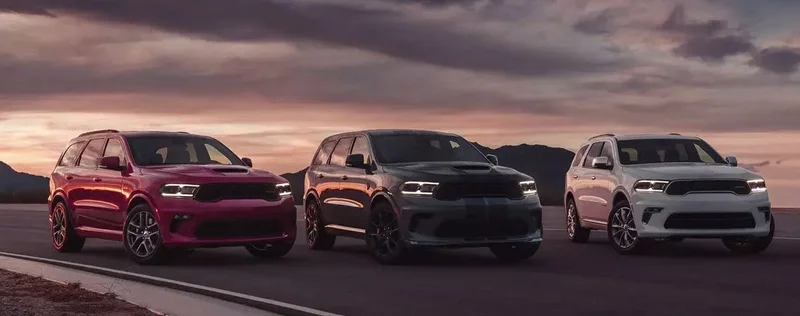Okay, folks, buckle up. I've got some news that might sound like a setback at first, but trust me, it's a potential launchpad. We're talking about Exro Technologies, a company working with Stellantis (you know, the folks behind Chrysler, Dodge, Jeep, and Ram) that just filed for bankruptcy after ceasing US operations. Sounds bad, right? Well, let’s dig a little deeper, because I think this could be the jolt the industry needs to truly embrace radical innovation.
Here's the deal: Exro was developing a coil driver for electric cars, something Stellantis bigwigs were pretty excited about. Teresa Thiele, Stellantis’ senior vice president of global purchasing programs, even said their expertise helped enhance vehicle designs, cut costs, and improve performance. That's huge! But, like many startups pushing the bleeding edge, Exro hit financial speed bumps – a $78.9 million net loss will do that to you. They laid off workers, the CEO stepped down, and even a $30 million lifeline wasn't enough to keep the US operations afloat. They've filed for Chapter 7 bankruptcy, which means liquidation.
Now, some might see this as a failure. I see it as a catalyst. Why? Because innovation isn't a straight line. It's a messy, iterative process. Think of it like this: the Wright brothers crashed a lot of planes before they finally soared. And those crashes, those failures, those near-bankruptcies – they’re all data points. They tell us what doesn't work, so we can focus on what does.
And let's be real, the automotive industry is ripe for disruption. For too long, it's been dominated by legacy thinking and incremental improvements. We need bold moves, daring experiments, and yes, even spectacular flameouts to truly revolutionize how we move. What if Exro’s struggles force Stellantis and other major players to rethink their supplier relationships? What if it pushes them to invest more directly in cutting-edge technologies, fostering a more collaborative and agile ecosystem?
It makes you wonder, doesn't it? How many other potentially game-changing technologies are out there, languishing in garages and labs, just waiting for the right opportunity, the right funding, the right partnership to take off?
Speaking of disruption, check this out: Carvana, the online used-car dealer that had a meteoric rise and then a bit of a stumble, is now buying up Chrysler-Dodge-Jeep-Ram dealerships. Yes, that Carvana. They've got two now, one in Arizona and one in Texas. After the Arizona dealership purchase, a company spokesperson characterized it as “a small test in a single market."

It's a curious move, right? Carvana, the poster child for online car sales, suddenly embracing brick-and-mortar dealerships. But maybe it's not so crazy after all. The article I read said that the fact that they’re both Stellantis dealers appears to be a reflection of the current state of the retail business. Put simply, they’re available. Perhaps Carvana sees an opportunity to blend the convenience of online shopping with the tangible experience of a traditional dealership. Maybe they need a physical footprint to navigate those pesky legal roadblocks to online-only sales. Or maybe, just maybe, they see something others don't: a future where the lines between online and offline, new and used, are blurred beyond recognition.
This reminds me of the early days of the internet, where everyone was scrambling to figure out how to adapt to this new paradigm. Some companies thrived, others went bust. But the ones that succeeded were the ones that were willing to experiment, to take risks, to embrace the unknown. What will this mean for dealerships like Landers Dodge Chrysler Jeep Ram, San Antonio Dodge Chrysler Jeep, Houston Dodge Chrysler Jeep Ram, or Nielsen Dodge Chrysler Jeep Ram?
And it's not just Carvana. Remember Nino Sita, the general manager at Lindsay Dodge Chrysler Jeep Ram? He steered that dealership to the number one CPO ranking in the region by prioritizing used car sales and fostering a "one-team" philosophy. This is the kind of innovative thinking we need to see more of in the automotive industry.
So, what's the takeaway here? Exro's bankruptcy isn't an ending; it's a beginning. It's a reminder that progress isn't always smooth, that failure is a part of the process, and that the greatest breakthroughs often come from the most unexpected places. It's a chance for Stellantis and other automakers to double down on innovation, to invest in the next generation of technologies, and to build a future where driving is cleaner, safer, and more exciting than ever before.
And yes, there are ethical considerations. As we push the boundaries of technology, we must ensure that we're doing so responsibly, with a focus on sustainability, equity, and the well-being of all. But that doesn't mean we should shy away from taking risks, from pushing the envelope, from dreaming big.
Because the future of driving is not just about faster cars or cheaper gas. It's about creating a more sustainable, more equitable, and more exciting world for all of us. And that's a future worth fighting for. When I first saw the news about Exro, I honestly just sat back in my chair, speechless, thinking about the sheer potential that still lies ahead.